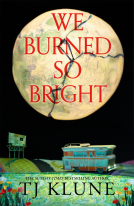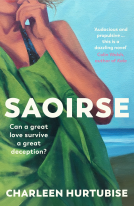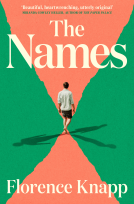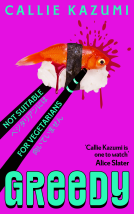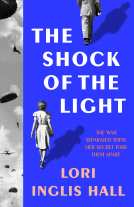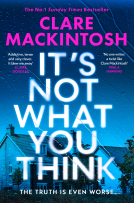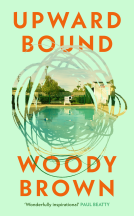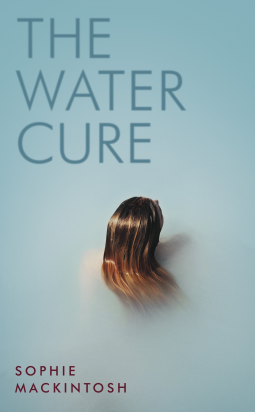
The Water Cure
LONGLISTED FOR THE MAN BOOKER PRIZE 2018
by Sophie Mackintosh
This title was previously available on NetGalley and is now archived.
Send NetGalley books directly to your Kindle or Kindle app
1
To read on a Kindle or Kindle app, please add kindle@netgalley.com as an approved email address to receive files in your Amazon account. Click here for step-by-step instructions.
2
Also find your Kindle email address within your Amazon account, and enter it here.
Pub Date 24 May 2018 | Archive Date 18 Sep 2018
Penguin Books (UK) | Hamish Hamilton
Talking about this book? Use #TheWaterCure #NetGalley. More hashtag tips!
Description
'A gripping, sinister fable' - MARGARET ATWOOD, via Twitter
'An extraordinary debut novel. Otherworldly, luminous, precise... She is writing the way that Sofia Coppola would shoot the end of the world' Guardian
Shortlisted for the Books Are My Bag Breakthrough Award
'Bold, inventive, haunting... With shades of Margaret Atwood and Eimear McBride, you'll be bowled over by it' Stylist
'Visceral, hypnotic... with one of my favourite endings I've read in a long while' The Pool
Imagine a world very close to our own: where women are not safe in their bodies, where desperate measures are required to raise a daughter. This is the story of Grace, Lia and Sky, kept apart from the world for their own good and taught the terrible things that every woman must learn about love. And it is the story of the men who come to find them - three strangers washed up by the sea, their gazes hungry and insistent, trailing desire and destruction in their wake.
The Water Cure is a fever dream, a blazing vision of suffering, sisterhood and transformation.
'If you're a fan of The Handmaid's Tale you'll love this one' Evening Standard
'Immensely assured, calmly devastating' Katherine Angel, author of Unmastered
'A work of cool, claustrophobic beauty' Eli Goldstone, author of Strange Heart Beating
'Eerily beautiful, strange [and] unsettling' Paula Hawkins, author of The Girl on the Train
'Otherworldly, brutal and poetic: a feminist fable set by the sea, a female Lord of the Flies. It transported me, savaged me, filled me with hope and fear. It felt like a book I'd been waiting to read for a long time' Emma Jane Unsworth, author of Animals
Available Editions
| EDITION | Other Format |
| ISBN | 9780241334744 |
| PRICE | £12.99 (GBP) |
| PAGES | 240 |
Average rating from 98 members
Featured Reviews
 Ashleigh A, Educator
Ashleigh A, Educator
Mt heart was in my mouth! The fear, the tension, the panic. This novel had me on page one, until the end. An eerie story with Grace, Lia and Sky...these women will hold your hearts as the battle through the journey of love and the dangers that come alongside it. A true reflection of sisterhood at its finest.
 Emma H, Reviewer
Emma H, Reviewer
Stunning. Heartbreaking. Searing. A gift.
I live for books like this. It’s beautifully written, deeply uncomfortable in parts and weird af. But all the great stuff is weird and confounding, right? You don't need to understand it all for it to resonate.
Something bad has happened on the mainland but we don't know what. Three sisters live on what seems to be an island, adrift with their abusive mother and father and the women who come to them to be 'cured'. It's sinister, febrile and ripe with calamity. And that's even before the men arrive. Men are a threat and a danger to their lives and their humanity, or at least that is what they have been taught to believe.
So much of girlhood and womanhood is made up of tales we are told to 'protect' ourselves, to be spared, to give ourselves over. And of course all the tales we tell ourselves to protect ourselves, hide ourselves, know ourselves. The girls do harm/are encouraged to do harm to themselves and each other under the guise of this protection, like spells. But always pain has been power. Pain means being alive. Pain very often also means control.
Ugh, it is so fantastic as it unfurls. I want to read more Sophie Mackintosh and I really hope a book of short stories is coming next.
 Reviewer 204997
Reviewer 204997
I started the year well by reading The Water Cure by Sophie Mackintosh, a gloriously written coming-of-age literary debut which explores power, survival and sisterhood.
Grace, Lia and Sky are sisters who are kept away from the outside world. This is for their own protection according to their mother and father, King. The world makes women physically sick and men are not to be trusted, but as long as the sisters do things their parent’s way everything will be alright. However, the arrival of a group of men will change their lives forever.
Mackintosh doesn’t shy away from expecting the reader to do some work; not everything is explained and there are deliberate gaps in the narrative making for a reading experience that is as challenging as it is enjoyable. Go read it!
 Reviewer 299989
Reviewer 299989
Beautiful book. I loved how unspecific the background to the story was; I formed my own personal ‘backstory’ but I think it could be imagined in so many ways! A very clever feat. The writing was beautiful and lyrical and almost poetic at times. Although some parts of the story were harrowing I liked the overall optimistic ending.
 Tara O, Reviewer
Tara O, Reviewer
The Water Cure tells the strange and compelling story of Lia and her sisters Grace and Sky, who live with their parents in a remote haven far from the dangers of the ‘mainland’. Quite what these dangers are is unclear - references are made to toxicity and illnesses, but it becomes clear that the greatest source of danger is men, who (with the exception of their father, known only as King, are considered evil and deadly). The girls have lived a strange, secluded life punctuated by the rituals, treatments and ceremonies their parents make them perform. When King disappears after a trip to the mainland, the girls and their mother are left vulnerable. When strangers arrive, their way of life and safety comes under threat.
The Water Cure explores female sexuality, guilt and fear, and the lyrical prose adds another layer of mystery to it. There were times when I wished I could just be told what exactly had happened to make the world this way - a war? A plague? - but perhaps a very direct explanation would have taken away the unsettling nature of the story, which takes much from the things that remain unknown, both by the characters and the reader.
 Laura S, Book Trade Professional
Laura S, Book Trade Professional
The Water Cure is fascinating, oddly soothing, like an otherworldly call to female arms. Quite unlike anything I’ve ever read, in a great way.
Wow. I absolutely adored this book. I ADORED it. At times, potently political, at other times haunting, even gothic, The Water Cure is a radical exploration of female insecurity and power that follows three daughters brought up in an isolated compound away from men. But then men arrive…
Grace, Lia and Sky are three sisters in their late teens and early twenties who, it quickly transpires, have been raised on an unidentified island by their mother and father, King. It seems the parents had decided that the mainland, the real world, was toxic, and that the men could not be trusted to not harm or exploit women, hence why the parents fled to the island and raised their daughters segregated from the wider world.
As a result, the three daughters have never left the island, and other than their father, they have no experience or memory of men. However, when King dies in a fishing accident, their lives are thrown into turmoil; their protection against the mainland and its men gone.
But unsettling details start to emerge about this supposed sanctuary – the mother is obsessed with sadistic rituals, often forcing her three daughters to inflict pain on themselves and their sisters to ‘cleanse’ themselves, to choke out any toxins that may be within them.
It also seems the island was once a refuge for abused women fleeing from the mainland – but those women no longer come and it’s not clear why. Plus, one of the daughters, Grace, is hiding a secret…
It’s a disquieting set-up – one filled with shadows and secrets – and the author’s prose only accentuates this with snatched glimpses of the extraordinary amongst the ordinary, offering up only partly explained scenes and memories. There’s a touch of the Shirley Jackson’s to the writing, of a dark romanticism, that I adored. (“I go down to the forest whenever I can shake my sisters off. The only place I can find a degree of calm is among the sightless trees, their shadow.”)
But then three men are washed up on the shores of the island, their boat apparently sunk in a thunderstorm, changing the lives of these four women forever. The questions is, will the parents be proven right in their reason to be wary of men?
This book is just glorious. For what could have been a straightforward account of female awakening and gender politics has been infused with plot and characters rich in detail and mystery. I can’t believe Penguin are sitting on this until next May as I just want to shout about it right now, tell my friends about it, get them this for Christmas…
This feels such a desperately relevant book – awakenings, power dynamics, gender politics… And all wrapped up in an almost dreamscape prose. This book deserves to find its audience. I really hope it does.
 Bert C, Bookseller
Bert C, Bookseller
The cover was what originally drew me to this book, and then I read it and it was terrific. The writing is exquisite, these kind of slow burn stories are quite often let down by boring writing but this is excellent. The story I think would appeal to readers who have enjoyed books like The Handmaids Tale and When She Woke. I really enjoyed it.
Closer to a prose-poem than a conventional novel, this offers a hallucinogenic meditation on gender and violence. The setting is opaque and the various voices all really one as three young women confront what the book proposes is their biological fate: 'the violence came for all women, border or no border. It was already in our blood, in our collective memory.'
So not the most subtle of feminist polemics but there's some lovely writing drawing on influences from traditional fairy-tales to contemporary writers like Atwood.
 Ciaran S, Reviewer
Ciaran S, Reviewer
The water cure is a deeply unsettling (in a good way!) debut novel. Set in a world just to the side of ours, i felt the shadow of MeToo fall heavily over the narrative. With a trio of sisters on an island kept away from an undisclosed event that has tainted the mainland, and references back to women who were escaping the terrible, undisclosed actions of men, there are many parallels to draw. This makes the book sound worthy and dry - it’s anything but. It can be elliptical, and you are left to draw your own conclusions of what’s really happening, but pieces drop into place with a horrible inevitability. Essential reading.
I've seen a lot of reviews about this book, and so I started reading with some trepidation. But it is not the confusing mess it has been made out to be. It is a beautiful, lyrical story of women, women who know intimately the violence of men.
The bond between women, the sisterhood, is a powerful force. In The Water Cure, we have three sisters who are bonded so tightly they are almost one. The author delves into important feminist themes, and one of the most interesting is the relationship between mothers and daughters. How wide is the gap between love and envy?
I would liken this book to The Handmaid's Tale, which seems an obvious comparison, but it is in the same style. So much is weaved between the pages, so many themes and underlying truths. The prose is beautiful, the story captivating. Read it.
 Hannah S, Reviewer
Hannah S, Reviewer
This book.
It is so very difficult to describe this book, which is I think one of the reasons why the blurb is so vague. This is the story of three sisters, growing up on an island with their parents where something is obviously not quite right but many things remain vague for the whole book. It is never clear whether the stories their parents tell them of the rest of the world are true or not. I personally adored this vagueness and the hypnotic and introspective way this story unfolds.
Sophie Mackintosh’s prose is lush and evocative; her sentences are breathtakingly beautiful and she spins her metaphors in such a brilliant way. Imagery of water is threaded through the whole book, changing meaning and implication depending on the narrator and the context. I adored that.
The author plays with voices and perspectives in a way that I obviously loved. I am a big fan of stories told, at least in parts, in a “we-“perspective and Mackintosh wields that difficult voice expertly. She switches perspectives in just the right moments and allows her narrators to be unreliable without loosing authenticity.
At the heart, this is a story about sisters (nobody is surprised that I love that) and their disfunctional relationship. The way in which flashbacks into their childhoods were integrated is brilliant and effortless and left me always wanting more while being able to fill in some blanks myself – I love it when authors trust me enough to do just that. I found the parts that examined their love and the way their parents broke them to be by far the strongest, whereas the storyline with the men washed ashore did not always work for me.
I thought that the pacing in the middle dragged a little, but the beginning and the ending were pitch-perfect. I cannot wait to see what Sophie Mackintosh does next, because I will definitely reading it.
First sentence: “First we have a father, but our father dies without us noticing.”
 Aileen G, Reviewer
Aileen G, Reviewer
This is, in my opinion, a mind bending book. I've read it, enjoyed it and still don't know where or when it is set. You get very little idea of the world at large. The women are isolated, and the isolation comes across strongly, in the way the book is presented. It took me a chapter or two to get into it - it's totally different to the 'usual' way of writing a book, but once I made the switch in my mind I couldn't put it down and read it in one sitting.
Loved it.
 Christina M, Reviewer
Christina M, Reviewer
'The Water Cure' is a story of three sisters, an island and the men who shatter their solitary way of living. This is a beautiful, strange, singular book, reminiscent of the style of Shirley Jackson and Angela Carter. The writing is lyrical and holds you at arms distance, revealing key elements of the plot in dribs and drabs yet ensuring you're utterly engrossed while reading it. I adored its portrayal of first love - the obsessiveness of it and how it can set you aflame yet utterly destroy you all at the same time. I've heard a few reviewers describe it as being 'dreamlike' which is a very accurate description. Sophie Mackintosh deserves all the plaudits which are coming to her.
 Tamara R, Reviewer
Tamara R, Reviewer
Title: The Water CureThe Water Cure
Author: Sophie Mackintosh
From the back: Imagine a world very close to our own: where women are not safe in their bodies, where desperate measures are required to raise a daughter. This is the story of Grace, Lia and Sky, kept apart from the world for their own good and taught the terrible things that every woman must learn about love. And it is the story of the men who come to find them – three strangers washed up by the sea, their gazes hungry and insistent, trailing desire and destruction in their wake.
The Water Cure is a fever dream, a blazing vision of suffering, sisterhood and transformation.
The gist: What a beautiful, dark book. It reads a little like you’re floating. Somewhere between being caught in a heat haze and drowning in a slightly cloudy yard pool. There’s something delicate about this book, something ever-so-slightly ethereal. And yet, something dark and unnerving.
It’s not a book with hard edges – it’s not something you’ll enjoy if you love joined up endings and matter-of-face plotlines. But if your reading tipple is composed of beautifully poetic prose, writing that lets you fill in the gaps (or leave them there) then this is for you.
It’s a dark, playful exploration of growing up, of being a girl, and of control with a haunting quality that will stay with you long after you finish it.
And if you needed any other reasons to read it; it has strains of Margaret Atwood, of The Virgin Suicides, and of Dogtooth.
[Interlude: if you haven’t seen Dogtooth I highly recommend it. It’s a darkly surreal Greek film, and on my top ten list]
Others have called the book ‘odd’ – and I agree. It’s odd like ‘the fascinating trinket you find in the back of a drawer.’ It’s odd like ‘the dream you can only just remember when you wake up.’ It’s odd like ‘have you seen the news recently?’
And, most interestingly – it’s uncomfortable, which is almost always a good thing.
Favourite line: We are lucky, because we have been exposed to minimal damage.
Read if: You want to feel like you stood up a bit too quickly on a very hot day (in a good way).
Read with: Margaret Atwood (tbf just do everything with Margaret Atwood)
 Ness C, Reviewer
Ness C, Reviewer
4.5 Stars
"The real trick is how and why we keep surviving at all."
If Margaret Atwood co-wrote a book with post-structuralist feminist author Helene Cixous, this might be the product of that union.
Dream-like and poetic, it is a tale of deep loss, love and of what it means to be a woman. It is a meditation on our society and whether Utopia can ever really exist.
The heat rises from the pages. The girls' voices are strong and clear and ensure we have a visceral sense of the island and of the characters' feelings. On that, I wanted to hear more from Sky's perspective.
It is a highly unusual novel that would generally fall outside my "comfort zone" of reading parameters, however I found the novel itself gripping and beautiful and read it within 24 hours. I had to find the "answers", to the extent extent there were any.
It is a haunting book that I will be thinking about and talking over in the coming weeks and months. It's not a book I would recommend to all of my friends - only those who don't mind a challenging read and who enjoy a truly unusual, expressive, thought-provoking experience.
Thank you to NetGalley, Hamish Hamilton, Penguin Books UK and Sophie Mackintosh for this ARC, provided for the purposes of an honest review.
 Ashwini A, Reviewer
Ashwini A, Reviewer
I have been trying to dive into new and different things lately and I have to say that 'The Water Cure' certainly falls into that category. Its plot and the writing is just so atmospheric and almost languid. I have to admit that I haven't really read anything like this before and the author impressed me!
When I started reading the book, I was really confused. I mean, I had a rough idea of what it was supposed to be but the thing is, the book is so much more! Right from the very start, you can sense that there's something odd about the girls' life. The three sisters; Grace, Lia & Sky, live on an island sequestered away from the world. Their mother telling them that men are the literal worst, then we see the odd and rituals they have to go through in order to not be contaminated. This book felt almost like I was walking through a mist with no sense of direction and oddly enough, I liked that feeling.
Their living on the island is filled with all the amenities one could dream of but there's always that sense of something being wrong about the whole thing. As if we are just waiting to see something bad happen. Then the men come to the island and the results aren't quite pretty. When the attraction happens, it happens with some consequences. The whole thing remains mysterious and in the end, I was left with questions that I did not have any answers to! Were the men that terrible? If yes, why? What was happening outside of their little island? What sort of contamination was their mother trying to save the sisters from?
Sometimes, I love it when I don't have all the answers by the end of the book and this is one of those times. However, I have to admit that I would have loved to have answers to at least some of the questions. I wouldn't say it left me unsatisfied but I was very hungry for more. I think, in making everything vague, the author just fueled the fire for curiosity which is totally awesome.
All in all, this was a very beautifully written, almost haunting book. I loved that, it isn't often I get to say that. I would absolutely recommend it to people who want to read something different, something new. However, be prepared to get sucked into this odd, little world of mysteries.
 Jenna M, Reviewer
Jenna M, Reviewer
This is an intriguing tale about young sisters who, along with their parents, live on an island. The girls are taught that the mainland is contaminated, and only their father goes there for supplies. They are also taught that men are evil, and they go through many ‘therapies’ and ceremonies to rid them of any contamination.
The story is beautifully written, however I would have liked to find out just a little more about the outside world and what was really happening, but the ambiguity of it is what the author wants, to keep you in the dark as much as the girls.
This is not an easy book to read. I think I made a mistake in rushing to finish it. It is better savoured in small sips rather than devoured whole.
I was drawn to this book because of the narrative voice it starts off with. First person plural - the collective voice of three sisters - Grace, Lia, Sky - who belong to a strange, dysfunctional family, living in a dystopian world. The voices switches to the individual perspectives of each of the sisters. Grace's voice talks to "you" - the father who has [died (hide spoiler)].
The land they live on is bordered by the sea on one side, and barbed wire on the other. The father is the only male on the island and is called King. The mother administers the "Water Cure" to broken, damaged women who come to their land. It is made clear what is happening on the mainland, only that it is a dangerous world for women. Men are held responsible for the damage to women. There are headphones and other technology on the mainland, so it's definitely set in a modern world.
The daughters/sisters are kept protected from this outside world, but they must also undergo therapies and cures that are reminiscent of Wilhelm Reich and other weird child psychologists. I don't know. It's bad enough that I know the name of this one guy.
Anyway, I loved the first half of the book where everything was being set up. I hated the second half where things happened. I did not particularly like the resolution. Things got a bit TOO intense and weird for my taste, and I was genuinely enjoying the weirdness and intensity.
Not sure how many stars this deserves. 3.7?
This book is odd.
There are a lot of things I like about it. The way the story is told is poetic and really feels lyrical as the book goes. How the story is told through the narration of three sisters makes for an unreliable (which I quite enjoy) narrative and it makes for a haunting read. You as the reader are involved in the process as you try to fill in the holes of the story the three tell you.
It is however a tiny bit predictable when it comes to the plot and how the characters are impacted by the changes they see to their lives, however it is not a typical ending to a book when it comes to stories like these and it makes for a budding tension that keeps on growing throughout the story.
I've not read a story like this before but it makes me want to read more.
I did enjoy this book, despite the fact that it is disturbing in numerous ways.
The novel is well written and intelligently thought out, somewhat vague, open to imagination and interpretation -without the story being made inaccessible or irritatingly lacking.
I'm normally not a fan of being left with more question than I started with, but Sophie Macintosh somehow makes it work in 'The Water Cure. We're treated to a deeply mysterious tale about three girls who have been isolated from the world by their parents (only known as Mother and King). We don't find out anything about the state of the outside world other than what the parents have told the girls - and really the whole background there screams cultish abusive control experiment.
There's also much rumination over feminist issues, such as the inequality of power and (lack of) safety between men and women.....and talk of suppression of women's emotions being key to protecting themselves- one point I did find utterly questionable, even in the context of the way the girls had been manipulated. I suppose not all of the points the author wanted to make fit snuggly into the story she wanted to tell.
Nevertheless, a novel with much to recommend it and much material for discussion. I would certainly recommend this, most particularly to a Young Adult readership with the hope of stimulating thought and conversation.
Readers who liked this book also liked:
We Are Bookish
General Fiction (Adult), Mystery & Thrillers
